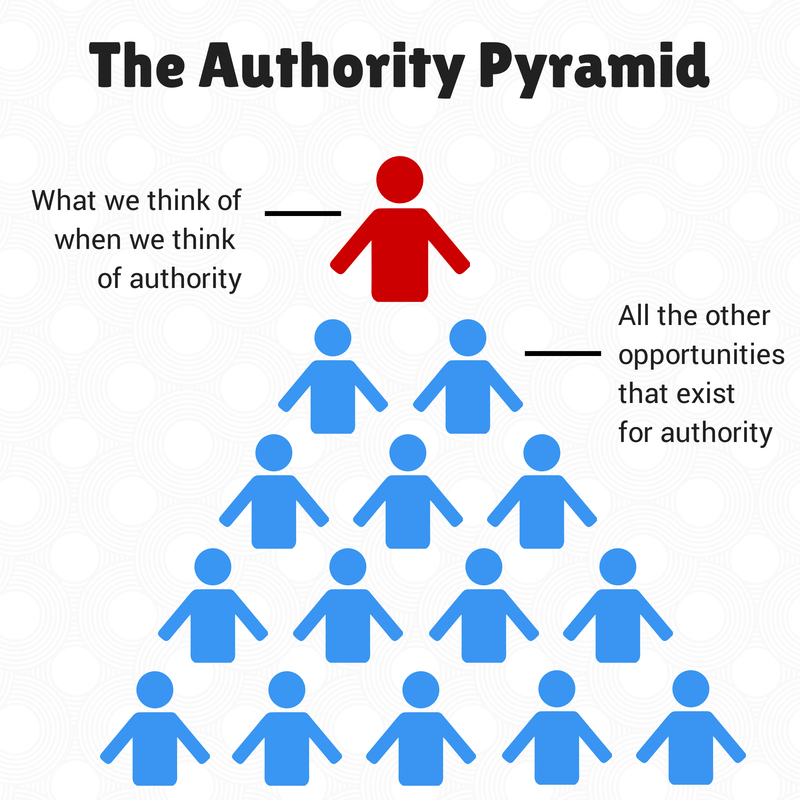One thing I’ve learned at Buffer is that being open to not knowing things seems to be the best way to learn quickly and teach others at the same time. So many of our biggest hits on the blog have come from saying, “We don’t know the answer. Let’s find out!”
On many matters, we haven’t any authority.
Is this an OK way to get by?
We’ve found great success in not knowing, and there’s no reason why you can’t, too. While we can certainly see the value in establishing yourself as an authority in your industry, being the answer-man or answer-woman isn’t the be-all, end-all of your options.
You can survive and thrive by embracing “I don’t know.”
Here’s what we’ve learned so far.
The leading authorities on not knowing
An interesting phenomenon occurs when you’ve been not knowing things for as long as we have. You become an authority on not knowing.
That seems to be the case here at the Buffer blog. We’d like nothing more than to be known as a go-to source for social media content. When you think about social media, we’d love for you to think of us!
At the same time, we understand that we may not be authorities on everything social media—we may not have all the answers right away, near at hand.
And that seems to be alright.
Instead of being authorities on social media, we can be authorities on thorough research, fascinating statistics, and personal experience. In other words, there is more than one way to cement yourself in the minds of your followers beyond traditional authority. If we can earn a reputation as a go-to source for social media content by embracing what we don’t know, then the opportunity’s there for you to do the same.
If you aren’t able to claim authority in your chosen field, you can still seek after a subset of authority. You can be an authority on:
- Tools
- Infographics
- Slideshows
- Writing with humor
- Having an awesome voice and tone
- Sharing your data
- Curating ideas and curating content
Find whatever it is you’re good at, and become the best you can be. Soon enough, your Facebook and your Twitter and your blog will be known for the quality, exceptional work you do, regardless of what it is that you don’t know.

So maybe authority means more than expertise, influence, and confidence. If we expand our definition, we can each find our own path to authority, however it may look.
Impostor syndrome: We all feel like we don’t have all the answers
I’ve had moments where I wasn’t sure I was cut out for my job. Have you had these moments, too?
We’re not alone. Psychologists call this impostor syndrome, and it applies to those of us who are unable to internalize accomplishments. Despite outward evidence that we’re great at what we do, we’re convinced that we’re frauds and undeserving of our place.
This level of “I Don’t Know” is more common than you might think. The term has been around since the 1970s, and researchers believe that up to 70 percent of people have felt the effects of impostor syndrome at some point.
If you’re interested in finding out if you have any characteristics of impostor syndrome, you can take the Clance Impostor Scale survey and see where you land. For each statement in the survey, you mark how true it is of you. For example,
- I tend to remember the incidents in which I have not done my best more than those times I have done my best.
- I often compare my ability to those around me and think they may be more intelligent than I am.
- At times, I feel my success has been due to some kind of luck.
Part and parcel of impostor syndrome is the feeling of not knowing—the lack of expertise that we’ve been talking about so far. Via the Crew blog, here is a simple illustration that shows how impostor syndrome feels:

In the same Crew blog post, Andrea Ayres explains what the manifestations of impostor syndrome might look like, how people may compensate for feeling like a fraud. Do either of these sound familiar to you, whether you’ve done them yourself or witnessed them from colleagues?
Overdoing: When people prepare to an almost obsessive level, putting in much more effort than is realistically needed in order to ensure they don’t fail
Underdoing: People will under prepare or put off doing something until the last minute so they can blame any possible failures on a lack of readiness, as opposed to their actual ability. If you don’t really try you can’t really fail, right?
Of course, neither of these outcomes is preferable. Overdoing will lead to pressure and burnout; underdoing will lead to poor quality and performance.
With the prevalence of impostor syndrome being as great as it is, there must be a better way to survive and thrive while feeling like you don’t have all the answers. Here’s one way that we’ve found.
Giving yourself permission to not know it all
I believe part of the reason for the pressures of impostor syndrome is that there is a stigma around not knowing something. If you feel like an impostor because you don’t have all the answers, it’s because somewhere along the line you learned that it’s best to have all the answers all the time.
Not only is this impossible, it might not even be the best way to go about it.
I’m fortunate to work at a place that embraces the “I don’t know.” Buffer’s values highlight the fact that it’s okay to not have all the answers. We phrase this in terms of curiosity, improvement, listening, and humility.
Here are some choice phrases pulled from our Buffer culture slide deck:
You take the approach that everything is a hypothesis and you could be wrong
You approach new ideas thinking, “What can we do right now?”
You are suggestive rather than instructive, replacing phrases such as “certainly” and “undoubtedly” with “perhaps,” “I think,” and “my intuition right now”
You seek first to understand, then to be understood
Does your company share this belief? I’d be interested to hear which perspective your work takes on the matter of authority and knowledge.
It certainly helps to have an employer so openly embrace the idea of not knowing. And at the same time, there is power in the individual assertion that you don’t have to know it all. Even if your company isn’t outspoken on the matter, you can change your personal philosophy and give yourself a break from chasing authority. You may find this new mindset refreshing, among the many other benefits of embracing the power of “I don’t know.”
3 incredible effects of embracing what you don’t know
“I don’t know” and trust
Jason Freedman of 42 Floors shared a story about a competitive hiring process where one of the key deciding factors for the candidate was Freedman’s openness about not knowing an answer. When Freedman said, “I don’t know,” the candidate was sold. Here’s the reason why:
When people say I don’t know, it lends credibility to everything else that they’ve said.
Think about someone who always seems to have an answer for everything. You’ve maybe wondered along the way if he or she really could know all this stuff, right? But when you admit to not knowing, you give power to the things you do know. People learn to trust your responses to questions and to know they can get an honest answer from you at all times.
“I don’t know” and innovation
Stay hungry, stay foolish
This quote from entrepreneur Sahar Hashemi plays off the idea of embracing the power of “I don’t know” as it relates to curiosity—a key to innovation. Hashemi believes that being clueless and curious is essential to entrepreneurship. Without it, you no longer dream, tinker, and ask “why not.” In this way, knowing too much can actually be a detriment.
“I don’t know” and creativity
Would you hire someone with little experience in your industry? Common sense might say no; however, some would argue that inexperience might be just the thing a company needs.
Nils Sköld writes about this idea on Medium, telling how a lack of knowledge can actually be an ideal way to spur creativity and think outside the norms of an industry. Have you experienced anything similar to this?
My theory is this: when you know everything about an industry, you don’t know whats good for it. What an industry needs is people who have no idea on how it operates. People that don’t know that there are any rules. While it is good to break rules and to push boundaries, it’s much better to just never know that any rules exists.
Our key to not knowing: “We don’t know the answer. Let’s find out!”
In our experience, there’s a bit more to the matter of not knowing than simply embracing our lack of knowledge.
We’d be sunk if we stopped at “I don’t know.” That’s why we follow up by finding out.
Much of our blog content comes from experience. We hunt for answers to our questions (and your questions!) and we report back with what we find.
What we lack in authority on social media, we make up for by seeking input from our audience in chats and conversations and by approaching our social updates with a curious, open attitude.
Q1: Before we get into a discussion of what’s next, how do you define digital marketing? #bufferchat
— Buffer (@buffer) July 16, 2014Embracing “I don’t know” is an opportunity to discover. We’ve found that having an attitude of improvement, experimentation, and curiosity makes it such that there’s no need to worry about not knowing this or that.
If we don’t know, we’ll find out.
Over to you: In what ways has not knowing benefited you?
Having authority in your industry is great, but it isn’t the be-all, end-all for growth. You can enjoy authority in many number of different ways from being the expert of experts to being the expert of your unique perspective.
We’ve embraced the power of “I don’t know,” and we’ve seen the benefits for trust, innovation, creativity, discovery, and so much more.
How do you feel about the topic of authority? Is it acceptable to embrace “I don’t know” in your workplace? I’d love to hear your thoughts and experience in the comments.
Try Buffer for free
190,000+ creators, small businesses, and marketers use Buffer to grow their audiences every month.


